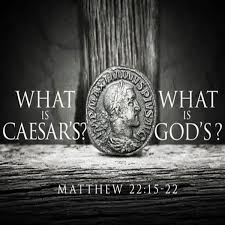Bible scholars and spiritual writers have much to say about Jesus in the gospel.
Their texts help us to see better the Man of Nazareth and who he was.
Their descriptions of his words and his ways lead us to understand better the kind of person he was.
There is one thing I do not recall having found and which strikes me in today’s gospel text
(32nd Sunday of Year B – Mk.12:41-44).
It is the way that Jesus noticed things – and people – while those around him seemed unconcerned.
Today, we are told:
“He (Jesus) sat down opposite the treasury and watched people putting money into the treasury…”
What did he noticed?
The rich and influent parading and putting in large sums to be admired?
The well-dressed and those in position of leadership bringing in their contribution in full view of all?
Jesus probably saw them – they meant to be seen –
but what he paid attention to was the offering of a poor widow.
This is one attribute, one attitude, of Jesus that I admire: 
he could notice people, each one individually.
Had he not raised his head to address Zacchaeus in his tree? (Lk.19:1-10)
Had he not asked who had touched him when, in fact, a crowd was pressing on him on all sides? (Mk.5:25-34)
And, of course, to Nathanael’s surprise, Jesus had noticed him under the fig tree. (Jn.1:48)
He looked, he noticed, he valued.
I like to believe that he is a man – a God – to whom we, each one of us, matter as individual persons.
One who notices small signs of attention to others, little gestures of kindness to people around us.
He notices, and he minds, he values what, to other people, might remained unseen and unsung.
But to God, there is no such thing!
Note: Another reflection is available on a different theme in French at: https://image-i-nations.com/32e-dimanche-de-lannee-b/
Source: Image: LDS Daily
 When the word ‘GOD’ is pronounced, several images can come to the minds of different people.
When the word ‘GOD’ is pronounced, several images can come to the minds of different people. Is it a question of choosing the kind of God one believes in?
Is it a question of choosing the kind of God one believes in?
 There is so much that is wrong in our world today, is it not so?
There is so much that is wrong in our world today, is it not so?

